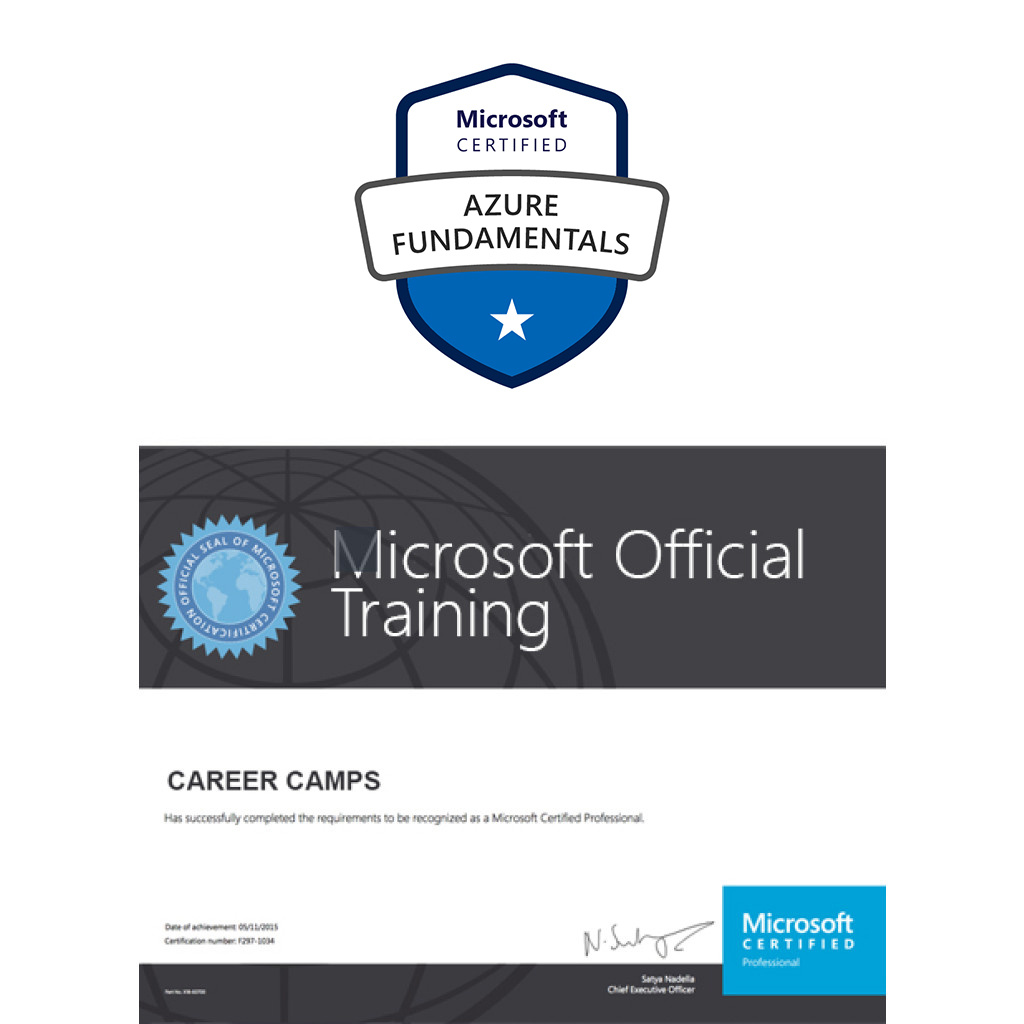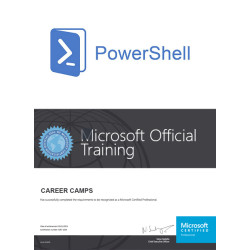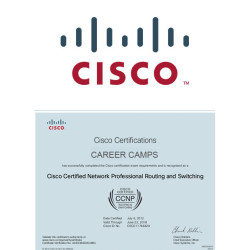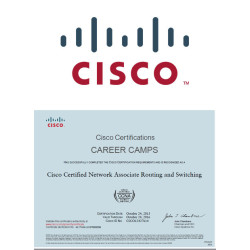
Azure Fundamentals Certification Camp (1 Course, 1 Exam, 1 Cert)
$995.00
The Microsoft Azure fundamentals Course is designed to help you build the skills and knowledge to implement, monitor, and administer an Azure environment. While attending this one-day course, students take the Azure Fundamentals exam (AZ-900) to achieve the Microsoft Azure Fundamentals Certification. This class is also part of the MCA Azure Administrator with Fundamentals Certification Camp.
EXAMS INCLUDED
AZ-900: Microsoft Azure Fundamentals
WHAT IS INCLUDED
| Airfare to/from Sarasota, FL | |
| 1 Nights of Lodging | |
| Ground Transportation | |
| Microsoft Training Books | |
| 1 Microsoft Exam Vouchers | |
| 1 Retake Voucher (if needed) | |
| Onsite Pearson Vue Test Center | |
| Microsoft Study Labs & Simulations |
LOCATIONS
Career Camps primary Microsoft Training campus (for individual students) is located in Sarasota, FL. Can’t travel to our facility? No problem! You will save on airfare, lodging and transportation. Just contact us and we will get you pricing to attend the class online live virtually from your work or home. If you do not see the location or class you are looking for, let us know! We have access to hundreds of classes and locations all across the United States and also offer corporate and group rates. If you have 5 students or more we can even come to you! With several partnerships in place, we are sure to have something to fit your needs. Whether you need to get MCA or MCE Certified, or get updated on Microsoft Windows Server 2022, we’ve got you covered.
Description
What Is Azure Fundamentals Certification?
Azure Fundamentals Certification (exam AZ-900) is a beginner-level Microsoft certification designed to validate your foundational knowledge of Microsoft Azure cloud services. It covers core cloud concepts, Azure pricing and support, and basic services like compute, networking, storage, and security. This certification is ideal for anyone starting their cloud journey—no technical background or prior experience with Azure is required.
Is Azure Fundamentals Certification Worth IT?
Yes, Azure Fundamentals Certification is worth it for individuals new to cloud computing or Microsoft Azure. It provides a strong foundation for understanding cloud concepts and Microsoft’s cloud ecosystem. Employers often view AZ-900 as a valuable entry-level credential, and it’s a great way to prepare for more advanced Azure certifications like AZ-104 or AZ-204. Even if you don’t plan to become a cloud engineer, AZ-900 helps you speak the language of cloud technology, an increasingly essential skill in IT, business, and data roles.
Is AZ-900 Hard to Pass?
The AZ-900 is one of the easiest Microsoft certifications to pass, especially for those new to cloud computing. The exam focuses on core concepts such as cloud principles, Azure services, pricing, and support. For most learners, passing is very achievable with the right preparation. Our 1-day Azure Fundamentals Boot Camp is specifically designed to help you pass the exam with confidence by providing expert instruction, focused content, and everything you need to succeed in a single day.
How Much Does AZ-900 Cost?
The cost of the Azure Fundamentals (AZ-900) Boot Camp is $995. This includes a 1-day intensive training, expert-led instruction, official course materials, and your AZ-900 certification exam voucher. It’s a fast-track option ideal for professionals looking to get certified quickly and confidently.
Do I Need AZ-900 Before AZ-104?
No, AZ-900 is not a required prerequisite for AZ-104, the Microsoft Azure Administrator Associate exam. However, it’s strongly recommended for those who are new to Azure or cloud computing in general.
At Career Camps, our 6-day Azure Administrator Boot Camp includes both the AZ-900 and AZ-104 exams, allowing you to build a strong foundation before advancing to administrator-level skills. This bundled approach helps ensure you’re fully prepared for the AZ-104 exam, even if you’re starting from scratch.
AZ-900 Boot Camp Description
The Microsoft Certified Azure Fundamentals Training & Certification 1 Day Boot Camp focuses on actual job task of managing Azure subscriptions, secure identities, administer the infrastructure, configure virtual networking, connect Azure and on-premises sites, manage network traffic, implement storage solutions, create and scale virtual machines, implement web apps and containers, back up and share data, and monitor your solution.
Additional topics include implementing, monitoring / maintaining Microsoft Azure solutions including major services related to compute, storage, virtual machines, network, Azure Entra ID (Active Directory) and security. This camp includes an essential Azure Foundations training to make sure students have an end-to-end understanding of Azure Administration.
Microsoft Official Courseware Course
AZ-900T00: Microsoft Azure Fundamentals
While attending this 1 day camp – students will take one exam (AZ-900) to achieve – Microsoft Certified Foundations. This hands on, instructor led live camp teaches the knowledge to administer an Azure environment along with the knowledge needed for the certification exams which are administered while attending. Our training and certification program maintains the highest pass rate of any Microsoft Official Training provider.
Career Camps also offers this class as part of a 6 day end to end boot camp covering MC Azure Foundations and MCA Azure Admin – click here
Topics Covered in this Official Boot Camp:
Describe cloud computing
Introduction to Microsoft Azure Fundamentals
Introduction to cloud computing
What is cloud computing
Describe the shared responsibility model
Define cloud models
Describe the consumption-based model
Describe the benefits of using cloud services
Describe the benefits of high availability and scalability in the cloud
Describe the benefits of reliability and predictability in the cloud
Describe the benefits of security and governance in the cloud
Describe the benefits of manageability in the cloud
Describe cloud service types
Describe Infrastructure as a Service
Describe Platform as a Service
Describe Software as a Service
Describe the core architectural components of Azure
What is Microsoft Azure
Get started with Azure accounts
Exercise – Explore the Learn sandbox
Describe Azure physical infrastructure
Describe Azure management infrastructure
Describe Azure compute and networking services
Describe Azure virtual machines
Exercise – Create an Azure virtual machine
Describe Azure virtual desktop
Describe Azure containers
Describe Azure functions
Describe application hosting options
Describe Azure virtual networking
Exercise – Configure network access
Describe Azure virtual private networks
Describe Azure ExpressRoute
Describe Azure DNS
Describe Azure storage services
Describe Azure storage accounts
Describe Azure storage redundancy
Describe Azure storage services
Exercise – Create a storage blob
Identify Azure data migration options
Identify Azure file movement options
Describe Azure identity, access, and security
Describe Azure directory services
Describe Azure authentication methods
Describe Azure external identities
Describe Azure conditional access
Describe Azure role-based access control
Describe Zero Trust model
Describe defense-in-depth
Describe Microsoft Defender for Cloud
Describe cost management in Azure
Describe factors that can affect costs in Azure
Compare the Pricing and Total Cost of Ownership calculators
Exercise – Estimate workload costs by using the Pricing calculator
Exercise – Compare workload costs using the TCO calculator
Describe the Microsoft Cost Management tool
Describe the purpose of tags
Describe features and tools in Azure for governance and compliance
Describe the purpose of Microsoft Purview
Describe the purpose of Azure Policy
Describe the purpose of resource locks
Exercise – Configure a resource lock
Describe the purpose of the Service Trust portal
Describe features and tools for managing and deploying Azure resources
Describe tools for interacting with Azure
Describe the purpose of Azure Arc
Describe Azure Resource Manager and Azure ARM templates
Describe monitoring tools in Azure
Describe the purpose of Azure Advisor
Describe Azure Service Health
Describe Azure Monitor
Additional information
| Class Dates | 11/03/2025 – 11/03/2025 – Sarasota, FL, 12/01/2025 – 12/01/2025 – Sarasota, FL, 01/05/2026 – 01/05/2026 – Sarasota, FL, 02/02/2026 – 02/02/2026 – Sarasota, FL, 03/02/2026 – 03/02/2026 – Sarasota, FL |
|---|
Our Facilities
CAREER CAMPS FACILITIES

CLASSROOM SERVERS – Students work on a dedicated Dell 8500 / 8700 with an Intel i7 (4th generation), minimum of 16GB memory (Most with 32 GB) and most with 512GB SSD drives.
CAMPUS INTERNET – The campus is connected with a 300Mbs Verizon Fios Business Connection which provides complete internet (including VPN) access for students.
COMMON AREA – Unlike any training facility ever – break room with Mame Arcade, high end “kitchen” with snacks, drinks (Starbucks Coffee, 100% juices, sodas, etc) and breathtaking terrace.
LODGING – We use the Marriott Fairfield Inn & Suites Lakewood Ranch. This “upgraded” hotel offers extremely comfortable beds, great breakfast and very fast (Verizon) internet access.
NEAR BY AMENITIES – Many shops, restaurants and grocery options are available within walking distance. Additionally – the hotel provided scheduled shuttle services. Restaurants like Bone Fish Grill, Ruby Tuesday’s, Five Guys, Chipotle, Quiznos, Chili’s and over 20 additional choices in the immediate area. All of these options are offered in a pedestrian walking village.
Why Choose Us
CAREER CAMPS DIFFERENCE
Career Camps provides an in-depth hands on learning environment. Our instructors teach using demonstrations and explain concepts beyond the scope of the courseware. The best instructors are contracted from all across the US. These professionals are real world consultants who actually implement these technologies. Career Camps knows our clients work in the “real world” and it only makes sense to have an instructor with the experience in the real world.
Facilities – Many of our competitors over-crowd classrooms by placing 2 to 3 students per desk and 20+ students per instructor. Often these companies “extend” the life of very old equipment with slow performance on the software used today. Our average class size is 8 students. Our facilities have the best equipment with the most comfortable, focused environment for learning.
Instructors – Our CEO, Chester Flake holds one of the rarest Microsoft Certifications – the Microsoft Certified Learning Consultant (MCLC) Certification. This certification reflects a commitment to make sure our instructors are also actively engaged in real world consulting projects. Students expect a professional who can answer questions and demonstrate the technology.
Face to Face Training – We believe the best way to interact and learn is face to face training. Many of our competitors which offer local training are simply providing students with headphones/mic to attend class with an instructor at a remote location.
Test Pass – We offer a free retake voucher (if needed) for each of the exams required for certification. Any training center offering a “100% pass guarantee” would have to use unethical practices or unlimited test vouchers (which is not likely or practical).
Distractions – Students often look for a “local” training center so they can be close to home and work. Boot camp requires a tremendous time commitment during the program. Long class hours combined with self study each evening. The goal of boot camp is to achieve certification in a fraction of the time. We strongly recommend students attend camp away from home and work in a focused, distraction free environment.
Boot Camp – Boot camp is an accelerated training focused on teaching technology and testing students on the official exams. Most training providers “added” boot camps to the existing standard training classes they offer. These training centers think a boot camp is just a regular class where you send the student home with a voucher on the last day. Career Camps administers exams throughout the camp. Equally important – not every trainer can teach a boot camp and not all courseware is designed for boot camp format. Our trainers know the boot camp format and our courseware is designed for accelerated learning.
Florida – Career Camps has one of the most scenic locations boasting some of the best weather in US. We believe students should have a comfortable and inviting atmosphere while attending these otherwise intense programs. We place our location, facilities and amenities up against that any competitor.
You May Also Like:
Related products
-
EC-Council Certified Ethical Hacker (CEH) Certification Camp
$2,995.00 Select options This product has multiple variants. The options may be chosen on the product page -
Microsoft PowerShell Training Boot Camp
$2,975.00 Select options This product has multiple variants. The options may be chosen on the product page -
Cisco CCNP Enterprise Certification Camp
$5,995.00 Select options This product has multiple variants. The options may be chosen on the product page -
Cisco CCNA Certification Camp
$3,495.00 – $4,195.00Price range: $3,495.00 through $4,195.00 Select options This product has multiple variants. The options may be chosen on the product page





